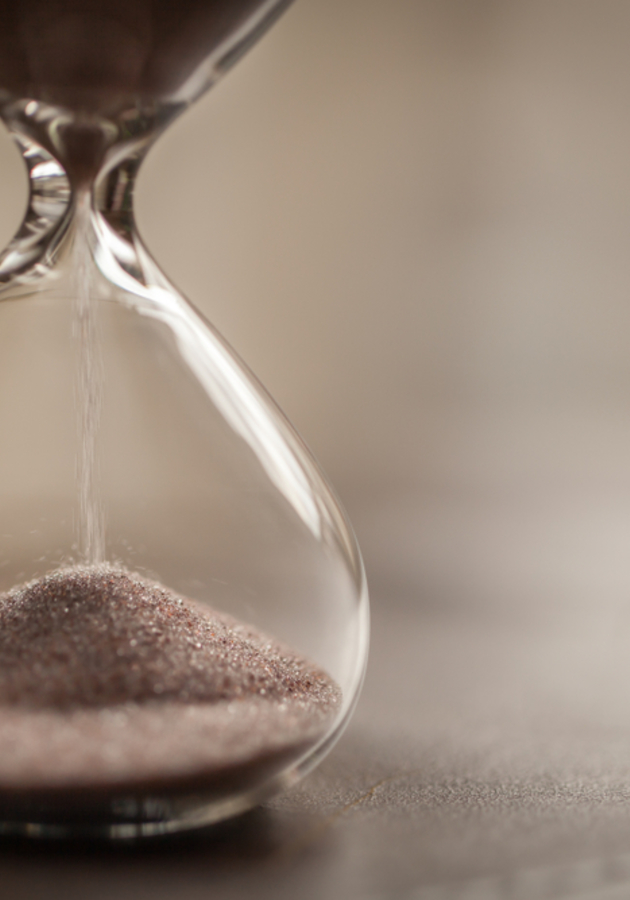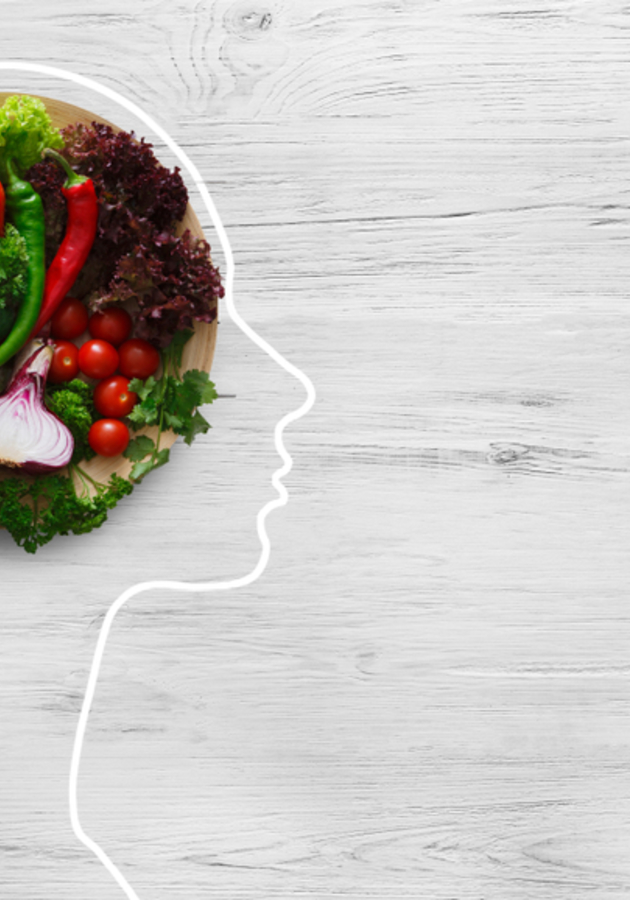There was a time when Dave Asprey wore size 46 pants and weighed more than 300 pounds. Lucky for him, that time is behind him. After struggling for a long time to lose weight and failing at every diet he tried, Asprey realized he had to create his own weight-loss program, one that would tackle his physical and psychological addiction to food. In his quest for a perfect diet, he discovered that fasting was the most effective way to achieve his goals. So, get ready to find out how you too can free yourself from food and all the ways it occupies your mind.
Fasting is not suffering
The road to gaining control over your hunger and cravings begins with learning how to fast effectively. But, before the fact that you must live without food for hours, sometimes even days, scares you, let’s break down some common misconceptions about fasting. First, ‘’fasting is not suffering,’’ emphasizes Asprey. Although it may be challenging for you in the beginning, eventually it becomes joyous and liberating. It gives you power and control over your body, and ultimately, brings pleasure and happiness into your life.
Next, fasting is not just about refraining from food, as many tend to believe. The word fasting can be used in numerous ways. Its core meaning express two words: ‘’going without.’’ And, there are many ways to go without, says Asprey. For example, meditation is going without thinking. Solitude is going without other people. Sobriety is going without substances. Have you ever heard of a dopamine fast? Psychologist Cameron Sepah created this concept. A dopamine fast is about avoiding instant gratification and stimuli in life, such as shopping, gaming, or consuming drugs and alcohol. As Asprey puts it, ‘’Anytime you reduce the inputs to your body, you may be fasting.’’
The last misconception people often have about fasting is that it means eliminating something from your life completely. However, fasting is much more flexible than that. Even during the fast, you can drink water, tea, coffee, or take some supplements that make the whole process easier.
Asprey says fasting is ‘’gain without pain.’’ It is a tool that makes you stronger and healthier, both physically and mentally. Furthermore, it frees you from fear and anxiety that you are weak if you skip several meals. Unlike most diets which forbid you to eat garbage food, a dieting plan based on fasting allows you to eat whatever you want on the days when you are not fasting. Whatever type of diet you choose, as long as you stick to the fasting techniques Asprey designed, you will be in a good physical and mental condition. The method he favors is called intermittent fasting. The basic principle of intermittent fasting is that you combine short periods of doing without followed by periods of returning to your baseline behavior.
What does fasting do to your body?
To understand how fasting benefits your body, we should first explain how your body processes food. After you eat, your body separates carbohydrates from food into a sugar called glucose - one of the chief sources of molecular energy in our bodies. Glucose levels in the blood then increase, and in response, the pancreas secretes a hormone called insulin. This hormone attaches to cells in your body and makes them fuel up on glucose. After this, your body releases hormones such as cholecystokinin and leptin to alarm you that you are full - and this is the moment you should stop eating.
What disrupts the digestive system from working this way are processed foods full of refined sugar and low-cost carbs. They mess up the release of those ‘’stop-eating’’ signals and bring more energy into your body than you need, which stores extra glucose as fat. At the same time, processed foods make your pancreas overwork in an attempt to maintain balance. Finally, the high intake of processed foods rich in refined sugar and low in carbs may eventually make your body insensitive to insulin. For those who do not know, insulin resistance is a lead cause of developing type 2 diabetes.
So, how does fasting benefit your body? First, it slows down the insulin-glucose cycle and gives your body a rest. Basically, when you refrain from food, your body uses stored reserves of sugar and fat. Your glucose levels remain the same, while insulin levels drop.
Endocrinologists at the Duke University School of Medicine have confirmed that intermittent fasting helps prevent insulin resistance. Furthermore, it activates the self-cleaning process in the body called autophagy. How does autophagy work? Using biomolecular tools, it collects what Asprey calls ‘’microscopic garbage’’ in your cells: accumulated toxins, pathogens, misshapen proteins, and dead cell parts. Autophagy is essential for keeping your cells in order as it ‘’cleans’’ this trash, which disables normal cell functioning.
The study conducted by researchers from MIT showed that fasting improves the ability of stem cells to regenerate. It even promotes the growth of nerve cells and expands the brain's ability to adapt to stimuli. Moreover, fasting reduces the risks of many chronic diseases and extends your lifespan.
Bulletproof Coffee
The intermittent fasting method Asprey created in 2014 led ‘’to all the people who used it collectively losing an estimated 1 million pounds,’’ he says. It is similar to 16:8 fasting, but with one key difference - it allows you to consume a cup of Bulletproof Coffee in the morning. When he was trying out different fasting models, Asprey created the recipe for what is now officially known as Bulletproof Coffee. Asprey says that ‘’coffee and fasting go together like motherhood and apple pie or teenagers and cell phones,’’ and he suggests drinking Bulletproof Coffee only in the morning. The primary purpose of this beverage is to keep you full while keeping insulin and protein metabolism silent.
Bulletproof Coffee contains two types of fats: grass-fed butter and MCT oil. MCT stands for medium-chain triglycerides, a group of fatty molecules that are easy for the body to absorb and process because they are relatively small. They have the ability to suppress hunger and increase energy in your body. Drinking Bulletproof Coffee while fasting does not stop autophagy and fat burning. Its purpose is to ‘’turn off’’ your food cravings and keep you full until lunchtime. If you do not normally drink coffee, think of it as a healthy food that has a bad taste, but leads to desired goals.
Bulletproof Coffee goes well with fasting as it makes your body burn fat as its primary source of fuel. This state is called ketosis, and it happens when levels of ketones in your bloodstream go up. When your body does not get enough glucose, your liver and muscles use carbohydrates stored in your body. Then, they convert fat into ketones - small molecules that circulate through the bloodstream and go to your muscle cells and other body tissues.
‘’Ketones not only provide energy, they also make you more alert,’’ adds Asprey. An expert on the human circadian rhythm, Satchidananda Panda, discovered that ketones function as miniature alarm bells, instructing the body to switch into an active, awake state. As it increases levels of ketones, consumption of Bulletproof Coffee also makes you energized.
CICO diets vs. fasting
It is wrong to confuse fasting and dieting. They do have some common traits since they involve going without food and losing weight. However, they are fundamentally different. Fasting deals with your psychological addiction to food as it shuts down your cravings. Dieting, however, makes them even worse since it treats being overweight as a willpower problem, not a metabolic problem. ‘’If you’re fat,’’ Asprey writes, ‘’it’s because your body is not effectively turning food and air into energy; instead, it is storing fat in your tissues.’’
Have you tried some diets after which you quickly regained all the pounds that you lost? The reason for this is the ineffective ways most diets tackle your metabolic problem. And, as they bring no long-lasting results regarding the weight loss, people eventually lose motivation to continue. The “calories in, calories out” (or CICO for short) approach to dieting is one of them. According to Asprey, CICO ‘’should be relegated to the dustbin of failed science.’’
The CICO dieting model is ineffective as it emphasizes the quantity (number of calories) over the quality of food. For instance, it does not make any distinction between 100 calories of Cheetos or 100 calories of soda, and 100 calories of fresh coconut or 100 calories of grass-fed beef. CICO diets also neglect the fact that our bodies respond to calories differently, based on their source, the time of consumption, and, in the author’s words, the ‘’physiological makeup of the person consuming them.’’
Asprey says he tried several CICO diets combined with intensive exercising, and neither of them produced any results. He also says he is no longer fat because he learned to say no to food in the right way, not because he ate fewer calories. So, if you want to lose weight, your goal should be learning to eat based on hunger, not on calories or cravings.
The four stages of fasting
Depending on how long it lasts, fasting has four stages. Each one brings benefits and affects your body differently, and for this reason, it is good to combine them. Some days you may realize you cannot endure fasting as you do not have enough energy. Asprey says that is okay, too. However, if you manage to endure it, you will unlock your superpower. These are the four stages of fasting that Asprey recommends.
- Stage 0. It begins after you finish your meal, and it lasts until the next one. The goal is to avoid snacking between meals and let your body take a break. However, Asprey says fasting after a meal is the hardest way to start a fast. According to him, it is better to begin fasting in the morning.
- Stage 1. Your goal at this stage is to go for 16 hours without a meal - hence the name 16:8 intermittent fast. During a 16:8 fast, glucose levels in your blood drop, which results in a decrease in insulin secretion. Keep in mind you might experience hunger, light-headedness, and agitation, especially in the beginning. Eventually though, as a result of burning glycogen in your muscles, you will have more energy as your body starts releasing adrenaline and cortisol. To proceed to stage 2, you should first accustom your body to 16:8 fasting several days a week for a month.
- Stage 2. This is a 24-hour fast. It causes your body to activate a process called lipolysis, which breaks down fat molecules into fatty acids. Asprey says you should never do Stage 2 fasts every day - it can affect your sleep quality, cause hair loss, and result in a decrease in sex hormone levels.
- Stage 3. Asprey says the 36-hour fast is his favorite fast. At this point, most people enter ketosis. After finishing a 36-hour fast, he notes that the first meal you have should include protein, fat, vegetables (carbohydrates), and lots of fiber.
- Stage 4. During this stage, which lasts for 120 hours, you are in full ketosis, and ‘’autophagy is in full swing in your body, clearing out toxins and dead cell parts.’’ Be careful to take supplements that will keep your electrolytes in balance. Exercising is not recommended during long fasts.
Final Notes
To ensure good results on the road to weight loss and optimal health, follow Asprey’s advice on intermittent fasting. Like thousands of people who tried his program confirm, fasting is not starvation, but a key element in any successful nutritional health program. As Shaman Durek, author of ‘’Spirit Hacking’’ wrote, ‘’’Fast This Way’ is both a timeless manifesto on the mental, physical, and spiritual rewards of fasting as well as a practically and philosophically relevant text on cultivating our inner wisdom.’’
12min Tip
Try to make Bulletproof Coffee by yourself. The recipe is simple - you only need to brew 1 cup of regular coffee, add 1 tbsp of C8 MCT oil and 1 tbsp of grass-fed butter, and blend all ingredients for 20-30 seconds.





























